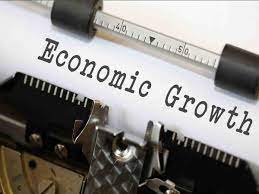- Headwinds last year hampered post-pandemic recovery
- Growth to rebound to 4% in 2023, 2024
- Inflation to decline from last year’s decade-high
- Improvements remain fragile
Africa’s economic growth will stabilise at 4% over the next two years, and inflation will slow as the continent rebounds from a pandemic-induced slump and external shocks including the Ukraine war, according to the African Development Bank (AfDB).
While Africa avoided some of the worst health impacts of the COVID-19 pandemic, many countries were hit hard by the economic fallout. And an initial 2021 recovery from the first pandemic shocks was hampered by rising inflation, spiking food prices and tightening global monetary policy last year.
Africa’s gross domestic product growth slowed to 3.8% in 2022 from 4.8% in 2021. But in its Macroeconomic Performance and Outlook published on Thursday, the Bank projected growth will accelerate to 4.0% this year and 3.9% in 2024, outstripping world averages.
“Africa has demonstrated continued resilience,” AfDB President Akinwumi Adesina wrote in a foreword to the report. “The top-five performing African countries before the COVID-19 pandemic are projected to grow by more than 5.5%.”
Buoyed by revenues and investment related to large natural gas projects, Mozambique and Senegal will rank among Africa’s fastest-growing economies. Senegal is projected to see its economy grow 10.2% in 2023, with Mozambique expanding 8% next year.
Africa’s two biggest economies – Nigeria and South Africa – will however remain a drag on continental growth, with projections of 3.1% and 1.4% respectively for this year.
Those growth rates are slightly higher than International Monetary Fund forecasts.
Meanwhile, average inflation, which last year hit 13.8% – the highest rate in more than a decade – will ease to 8.8% by 2024.
But the AfDB cautioned that Africa’s expected economic improvement remains fragile.
The number of African countries in debt distress or at high risk of it has ballooned since start of the pandemic.
Tightening monetary policy in wealthy countries has aggravated the strain on Africa, driving up debt service costs, restricting access to international capital markets and increasing instability in foreign exchange markets.
Reuters










